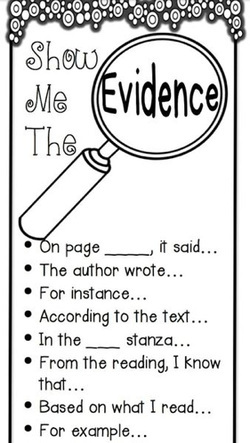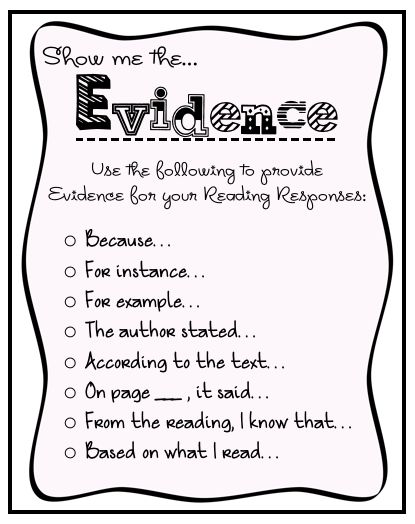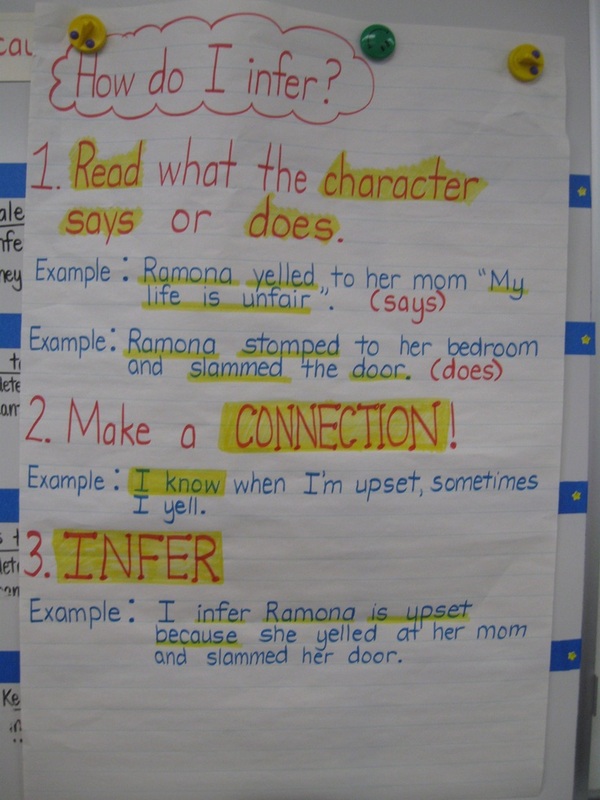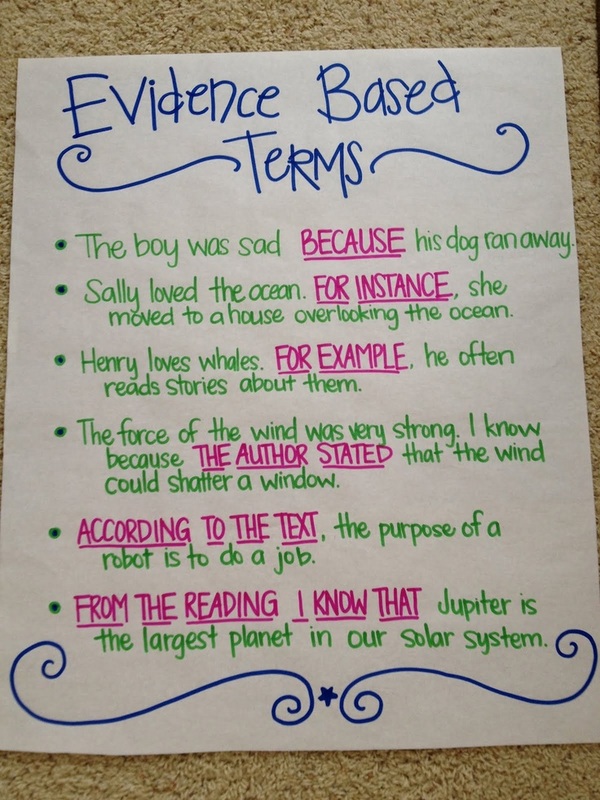Evidence and Inference in Fiction

http://thecreativechalkboard.blogspot.com
Quote Accurately
I can accurately quote from a text. RL.5.1
I can draw inferences when reading. RL.5.1
1. Quote accurately from a text when explaining what the text says explicitly and when drawing inferences from the text.
When answering questions about the most important details and events in a story, it is important to accurately quote text from the story. In addition to quoting text accurately to answer basic comprehension questions, you can also use specific details from the text to make inferences.When you make inferences, you use what you’ve read in addition to what you already know to fill in information that is not stated in a selection. You can use inferences to better understand a text and answer questions about it. To make inferences, ask yourself what information is missing from a text. Then think about your own experiences and other texts you’ve read to help you answer these questions.
Click here to see an example of making inferences within a fictional story.
I can accurately quote from a text. RL.5.1
I can draw inferences when reading. RL.5.1
1. Quote accurately from a text when explaining what the text says explicitly and when drawing inferences from the text.
When answering questions about the most important details and events in a story, it is important to accurately quote text from the story. In addition to quoting text accurately to answer basic comprehension questions, you can also use specific details from the text to make inferences.When you make inferences, you use what you’ve read in addition to what you already know to fill in information that is not stated in a selection. You can use inferences to better understand a text and answer questions about it. To make inferences, ask yourself what information is missing from a text. Then think about your own experiences and other texts you’ve read to help you answer these questions.
Click here to see an example of making inferences within a fictional story.








